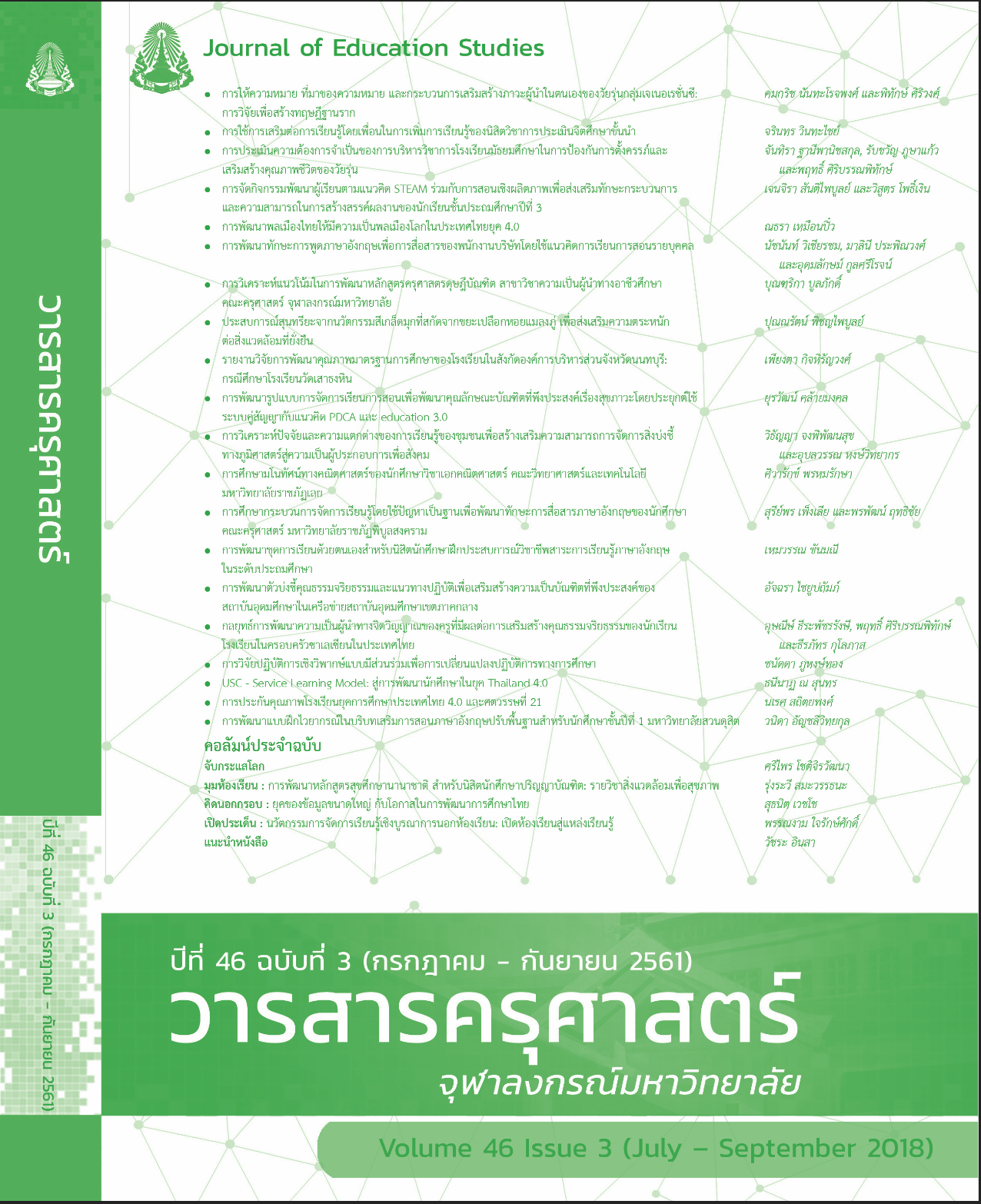การวิเคราะห์แนวโน้มในการพัฒนาหลักสูตรครุศาสตรดุษฎีบัณฑิต สาขาวิชาความเป็นผู้นำทางอาชีวศึกษา คณะครุศาสตร์ จุฬาลงกรณ์มหาวิทยาลัย
Keywords:
TRENDS, CURRICULUM DEVELOPMENT, VOCATIONAL EDUCATIONAbstract
Abstract
This research studied an analysis of trends in curriculum development for Doctoral Program in Vocational Education Leadership, Faculty of Education, Chulalongkorn University. The aims of this study were to: 1) study the need for further education in the Doctoral Program in Vocational Education Leadership; 2) analyze the curriculum of the Doctoral Program in Vocational Education Leadership in Thailand and the United States; 3) analyze the trends in curriculum development for the Doctoral Program in Vocational Education Leadership. The population comprised 135 public and private vocational colleges in Bangkok and its suburbs. The sample consisting of 405 administrators and colleges were purposively randomly sampled. The interviewers analyzed the trends in curriculum development consisted of 7 experts. The research found that some administrators and teachers have a desire to study in the Doctoral Program in Vocational Education Leadership, Faculty of Education, Chulalongkorn University. They desire to study a part-time program. The analysis of the curriculum of the vocational education curriculum at the Ph.D. level in Thailand will focus on management competence, curriculum development and enhancing skills related to vocational education. However, courses in the United States focus on preparing competent leaders and enhancing leadership skills in educational administration, including teaching and learning skills. There are a variety of subjects to select from. The trends in curriculum development for the Doctoral Program in Vocational Education Leadership were: 1) curriculum elements; in terms of learning content it was found that the vocational innovation, the development of vocational curriculum and the quality management for vocational education should feature. In terms of the learning management model, there should be cooperation with universities abroad to exchange professors and students. In terms of learning a variety of learning activities should be organized. Special teachers or experienced lecturers are invited, with emphasis placed on practice rather than classroom learning activities. 2) Educational management; courses should be divided into disciplines. The instruction time should be regular and part time. Regarding the desired characteristics of graduates, it was found that the curriculum had to produce graduates with good morals, ethics, communication skills, good human relations, problem solving skills and leadership in vocational education.



